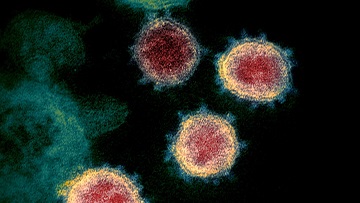COVID infection elicits long-lasting immunity, nullifying worldwide vaccine push: study
David McLoone
"We found antibody-producing cells in people 11 months after first symptoms. These cells will live and produce antibodies for the rest of people’s lives. That’s strong evidence for long-lasting immunity."
A newly published study into the long-term effects of infection with COVID-19 has concluded that contracting the virus can give people cells that “produce antibodies for the rest of people’s lives” against the SARS-CoV-2 virus.
Commenting on the findings, the study’s principal author, Dr. Ali Ellebedy, Ph.D, said the presence of such antibody cells is “strong evidence for long-lasting immunity” against COVID-19, if one has been previously infected.
The study, titled “SARS-CoV-2 infection induces long-lived bone marrow plasma cells in humans” and published May 24 in the journal Nature, was conducted by a group of researchers at the Washington University School of Medicine (WUSM) in St. Louis. The team tracked the antibody development of 77 previously infected individuals, each of whom donated blood samples at three-month intervals from the first month after their infection with the SARS-CoV-2 virus. The team discovered that, with mild infections, antibody levels were initially high but dropped steeply within a few months, remaining steady thereafter without disappearing entirely. In fact, according to the study, a small number of antibodies were still detectable after 11 months. Ellebedy, associate professor of pathology and immunology at WUSM, explained that such a phenomenon is exactly what should be expected with a normal viral infection cycle and does not point to only a short-term immunity.

























